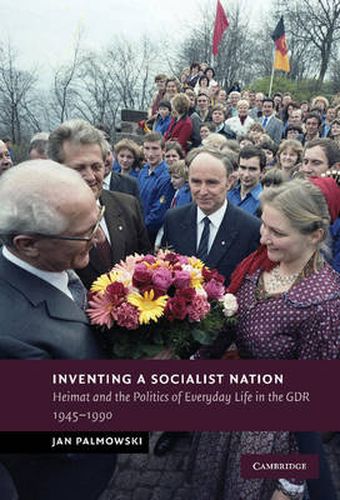Readings Newsletter
Become a Readings Member to make your shopping experience even easier.
Sign in or sign up for free!
You’re not far away from qualifying for FREE standard shipping within Australia
You’ve qualified for FREE standard shipping within Australia
The cart is loading…






Twenty years after the collapse of the German Democratic Republic, historians still struggle to explain how an apparently stable state imploded with such vehemence. This book shows how ‘national’ identity was invented in the GDR and how citizens engaged with it. Jan Palmowski argues that it was hard for individuals to identify with the GDR amid the threat of Stasi informants and with the accelerating urban and environmental decay of the 1970s and 1980s. Since socialism contradicted its own ideals of community, identity and environmental care, citizens developed rival meanings of nationhood and identities and learned to mask their growing distance from socialism beneath regular public assertions of socialist belonging. This stabilized the party’s rule until 1989. However, when the revolution came, the alternative identifications citizens had developed for decades allowed them to abandon their ‘nation’, the GDR, with remarkable ease.
$9.00 standard shipping within Australia
FREE standard shipping within Australia for orders over $100.00
Express & International shipping calculated at checkout
Twenty years after the collapse of the German Democratic Republic, historians still struggle to explain how an apparently stable state imploded with such vehemence. This book shows how ‘national’ identity was invented in the GDR and how citizens engaged with it. Jan Palmowski argues that it was hard for individuals to identify with the GDR amid the threat of Stasi informants and with the accelerating urban and environmental decay of the 1970s and 1980s. Since socialism contradicted its own ideals of community, identity and environmental care, citizens developed rival meanings of nationhood and identities and learned to mask their growing distance from socialism beneath regular public assertions of socialist belonging. This stabilized the party’s rule until 1989. However, when the revolution came, the alternative identifications citizens had developed for decades allowed them to abandon their ‘nation’, the GDR, with remarkable ease.